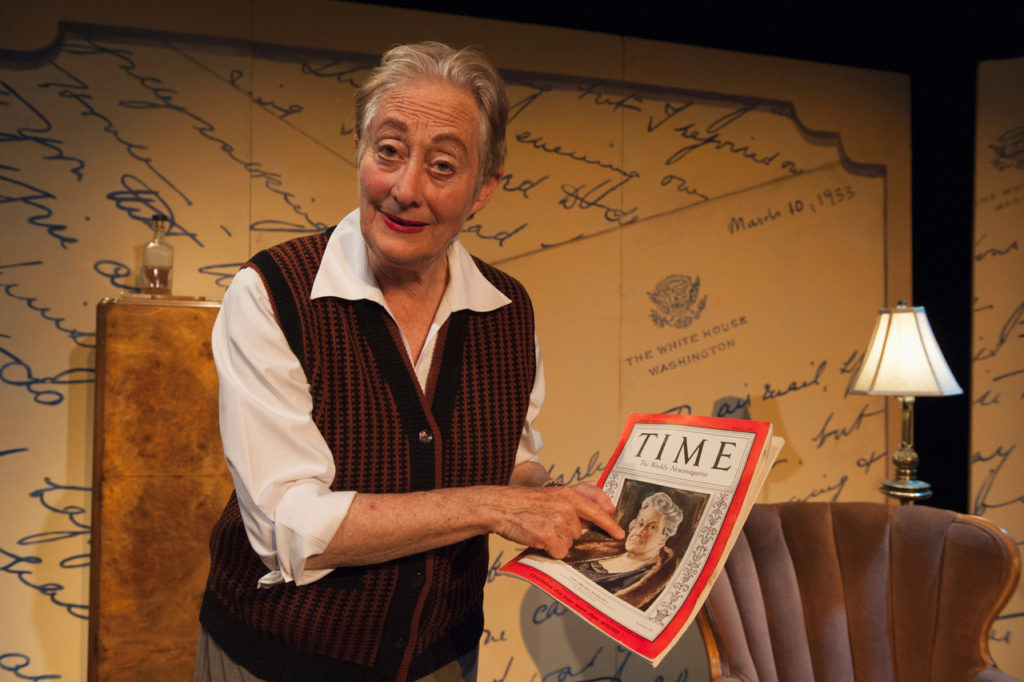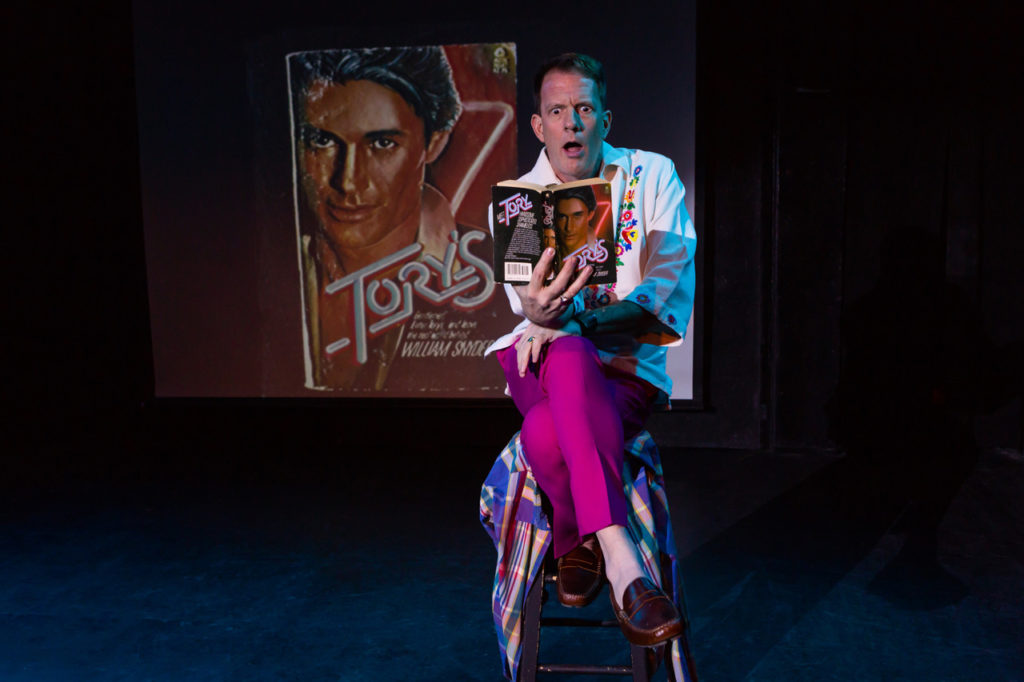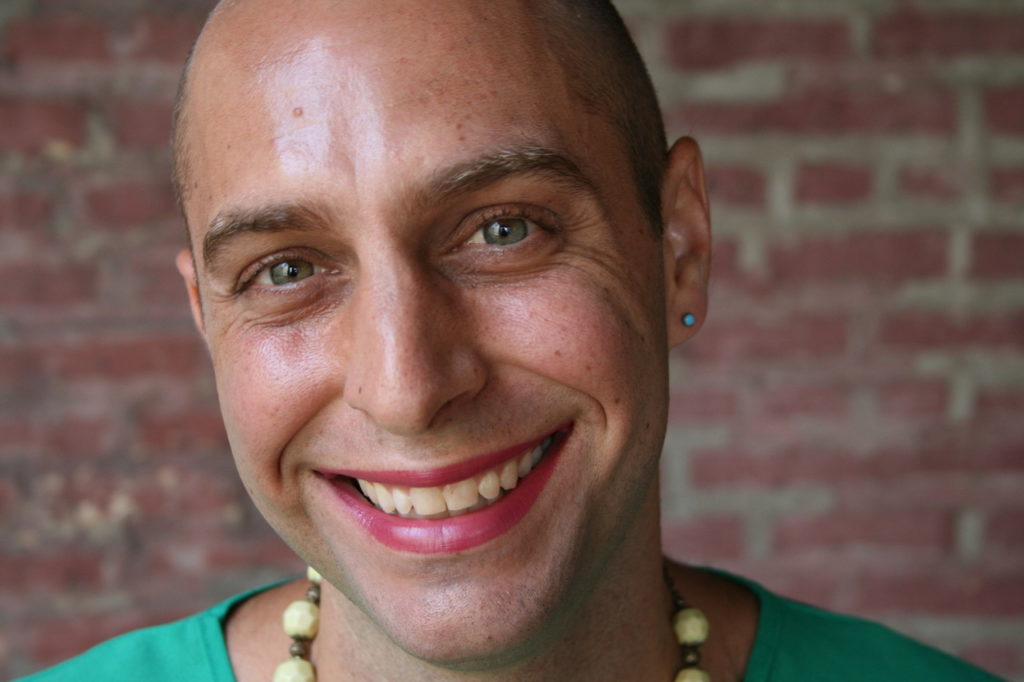Everyone’s got a story to tell and everyone’s a critic.
Both of these truisms will be in full effect—celebrated and elevated—at the annual San Francisco Fringe Festival, which returns to the EXIT theater for a 28thyear with an eclectic mix of memoir, magic, music and movement on three small stages from September 5-14. Among the productions—each running under 60 minutes and playing four times over the length of the festival—are several shows with queer creators and content:
“Hick: A Love Story,” about the relationship between Eleanor Roosevelt and reporter Lorena Hickok; “I Favor My Daddy,” a tragicomic Southern-fried monologue about uncovering family secrets; “My Will and My Life,” a unique take on Father Mychal Judge, the gay Catholic chaplain to the New York fire department and first certified fatality of 9/11; and “Grief Is Horny,” a knotty, nutty biographical tale of mourning and masturbation.

The Bay Area’s most democratic annual theater event, the SF Fringe is entirely uncurated: This year’s 21 productions were selected from over 100 shows entered into a random lottery by their creators for a $40 entry fee. Beyond that fee, artists pay only travel costs if they come from a distance and a small facilities charge. EXIT’s production and promotion is supported by grants and donations with 100% of ticket sales going to the artists.
To encourage audience experimentation, tickets are no more than $13 a show and attendees can catch up to four shows during a single weekend day (two shows on weeknights).
“Hick” creator Terry Baum, an internationally acclaimed lesbian theater-maker who has previously participated in the SF Fringe as both an artist and an attendee says the format rewards adventurous audiences. “Its for people who love theater and people who enjoy trying something new. Its fun to just indulge yourself and pick things at random. It’s not critic driven.”
“Some press critics do come the first weekend,” says EXIT publicist Nicole Gluckstern, “but there’s practically no way a single reviewer can weigh in on every show to tell you what they think is best.”
Instead Gluckstern explains, patrons are encouraged to help each other curate their schedules. “In our hallways and café between shows you see a lot of interaction and conversation about what to see next.” Attendees are also encouraged to provide heads-ups to fellow showgoers—and constructive criticism to the artists, many of whom use Fringe performances to help develop new work—via a dedicated page for audience reviews on the EXIT Theatre website. SF Fringe is one of over 30 North American members of the Canadian Association of Fringe Festivals (CAFF), whose core tenets state that “Our festivals are designed to put artists and audiences in direct contact, fostering experimentation and discovery on both sides of the fourth wall.”

“San Francisco is one of the smaller Fringe festivals, which has its benefits” says New York-based Jamie Brickhouse, a Moth storytelling champion whose “I Favor My Daddy” is a follow-up to a monologue about his mother that sold out its performances at last year’s SF Fringe and has since been commercially produced in Colorado and New Jersey. “Some of the others are so spread out in venues around a city. In San Francisco, having three theaters in the same building I have much more of a chance to meet other artists, see other shows and make connections for the future.”
While autobiographical solo performances like Brickhouse’s are a Fringe staple, there are plenty of other forms included in this year’s SF Fringe, including “Fingertips,” based on songs by They Might Be Giants, a magic show by Sausalito’s Ryan Kane, and a blues-rock mini-musical “Why My Unicorn Left Me.” And then there’s “My Will and My Life,” with a script by Harry Cronin performed by East Bay actor John Tranchitella, which offers a multilayered palimpsest of autobiography and documentary, telling the story of Father Mychal Judge through the eyes of George, a fireman who Judge sponsored in AA. “When I first read the play,” says Tranchitella, who has previously performed it in the Bay Area and New York, “I felt like George’s story was very much like mine: being Catholic and in the closet, full of shame. I related to him as much as to Father Judge.”

More traditionally autobiographical is the local debut of Jonathan Euseppi, a non-binary writer-performer from Chicago’s improv and stand-up scenes. His show, “Grief Is Horny,” springs from the disorienting confluence of his father’s death and the onset of puberty when Euseppi was 13. “When I started to write the material,” says Euseppi, “I was doing stand-up open mics. But you only get four minutes in those shows and it just didn’t feel right, because it was all jokes. I needed this format to be able to mix a combination of emotionally heavy stories with very funny stories. Among the latter are the tale of a communal pink dildo shared by several teenage boys and hidden from prying parents in a Hot Wheels box.
“I really unwound a lot of childhood trauma in writing this show,” Euseppi says. “I resisted the parts about my father until literally a week before I first performed it, and then I just started writing and started crying. It turns out I got a lot of peace from writing those stories.”
For Euseppi, taking a creative risk paid off handsomely. The SF Fringe invites audiences to jump into the unfamiliar and take some risks of their own.
